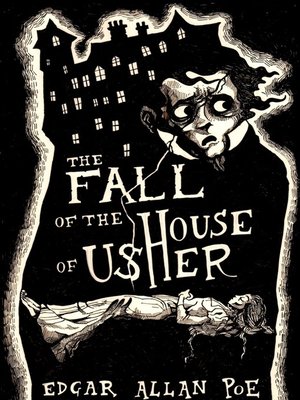
Roderick Usher, like Edgar Allan Poe, was an aesthetic man. Roderick Usher, like Edgar Allan Poe, was an artistic man. “The Fall of the House of Usher” is perhaps one of the strongest instances of how his stories mirrored his mind and his demons, participating in a Freudian death wish and the horror of self-fulfilling prophecy. He was a nervous creature who played out his paranoia through his protagonists and their grotesque adventures.

Poe suffered under a rudimentary pathology: Fear. Edgar Allan Poe is the quintessential tortured artist.įrom murder to necrophilia, Poe peeled away social veneer and pried into the inhumanities of humanity while he himself wrestled with inescapable misery and misfortune. He became a writer as a means of survival and emotional release, and his writings were dominated by death, nightmares, corruption, madness, and by the haunting of the subconscious psyche. The young Poe was eventually driven from his foster father by hatred into a life of drifting destitution. For any civilized reader, there is no better way to usher in the howling fall than with “The Fall of the House of Usher,” a tale observing its 175th anniversary of publication this September and there is no better way to encounter the terrors of this tale than with a glimpse of the terrors of its teller.Ī wealthy Virginia tobacco and tombstone merchant named John Allan took in the orphaned Edgar Poe, born January 19, 1809.

Conjured over a century ago, Poe’s phantasmagorias remain unparalleled to this day in their rich, velvety, cerebral, and suffocating horror. He is the undisputed master of the macabre and the father of the supernatural and psychological thriller. Throughout his 40 tormented years of life, Edgar Allan Poe was widely hailed as a genius for the black brilliance of his art. There is a notable nightmarish and intangible quality to “The Fall of the House of Usher,” as there is in many of Edgar Allan Poe’s gothic masterpieces-a vague sense of foreboding, a floating uneasiness, or shadowy moodiness that is beyond the power of words to express…Įnigmatic.


 0 kommentar(er)
0 kommentar(er)
